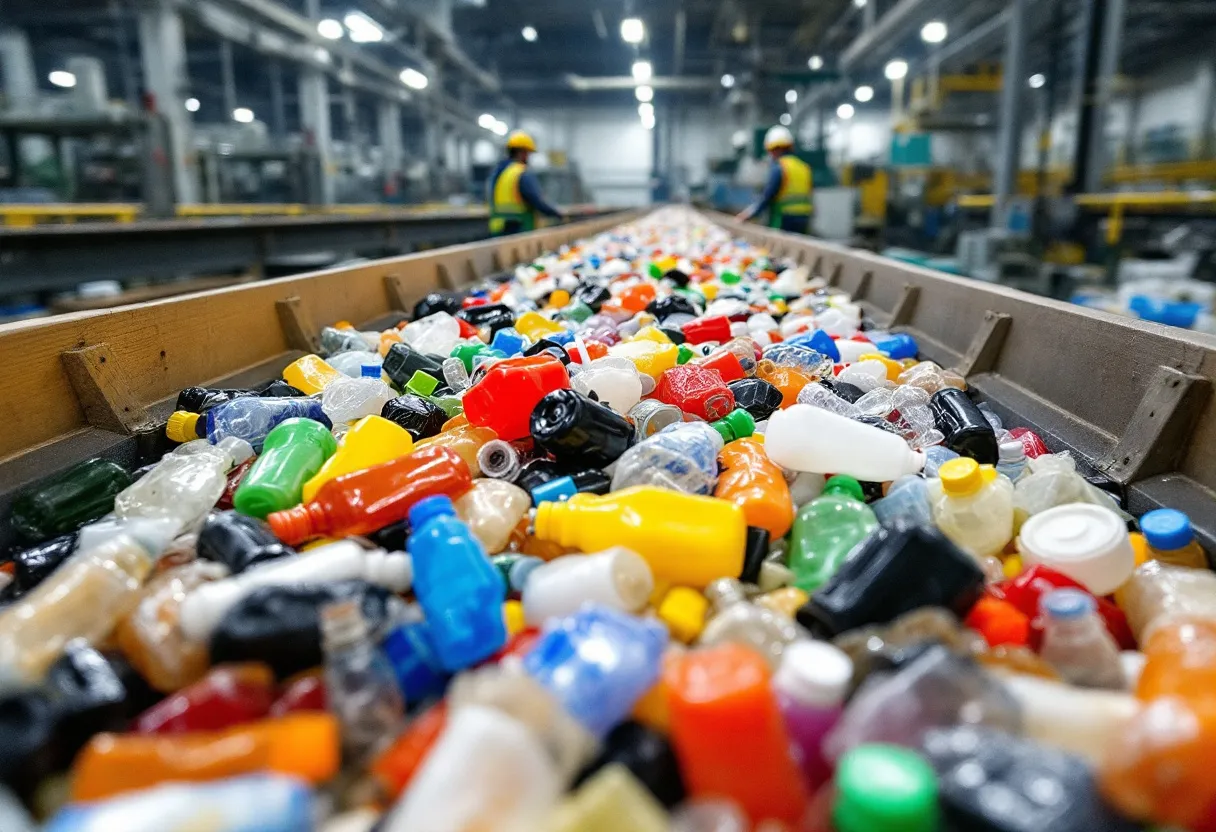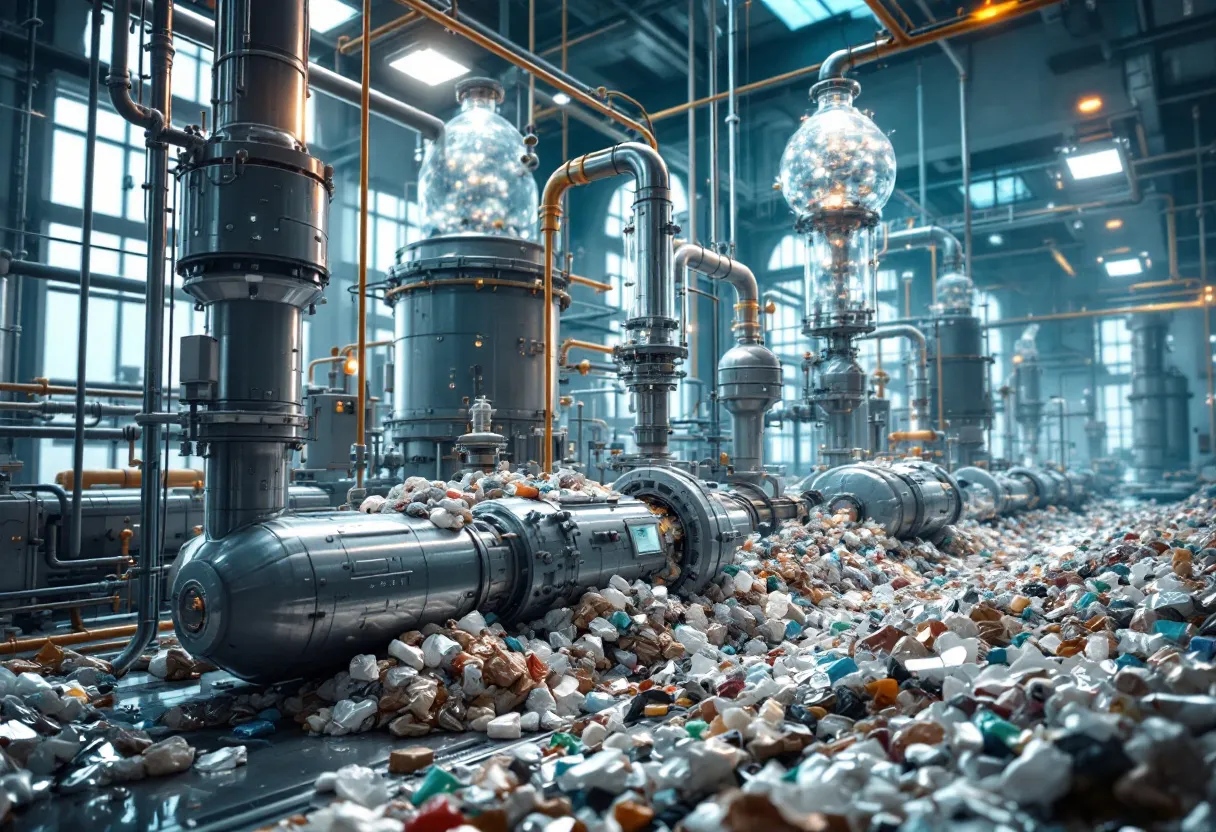Bonjour, mes amis! As a native of Lyon and someone who’s dedicated a good chunk of my life to environmental science, I’ve seen firsthand the evolution – and sometimes, stagnation – of waste management in France. Today, I want to talk about something close to my heart, and crucial for our future: plastic recycling. It’s a complex issue, riddled with misconceptions, but understanding the reality is the first step towards making a real difference.
The State of Plastic Recycling in France: A Reality Check
Let’s be frank, the numbers aren’t pretty. While the EU pushes for a 50% recycling rate for plastic packaging by 2025, France is lagging, hovering around 27%. Honestly, it’s a bit embarrassing. We pride ourselves on “le bon vivre,” but our recycling habits? Not so much. A large chunk of plastic waste ends up incinerated or in landfills, a far cry from the circular economy we should be striving for. It’s not that we don’t care, but rather, the system needs a serious overhaul.
It’s a problem for them to create plants for processing and recycling plastic wastes. So supplying countries should help in solving of this problem. With decades-long experience in plastics recycling, were prepared to tackle your toughest challenges with technology and trusted partnerships. Got a sorting … One of the many solutions to the problems of recycling plastic bottles can be a technology developed at the University of Limerick in Ireland, RTE radio station …

What Plastics Can Actually Be Recycled in France?
This is where things get confusing. You see that little triangle with a number on your yogurt pot? It doesn’t automatically mean it’s recyclable! Generally, in France, we’re talking about PET (polyethylene terephthalate, number 1) – think water bottles – and HDPE (high-density polyethylene, number 2), commonly used for milk jugs and some detergent bottles. These are the easiest to recycle and have established recycling streams.
However, the reality is much more nuanced. Many other plastics, like PVC (number 3), LDPE (number 4), PP (number 5), and PS (number 6), often end up in the non-recyclable bin, even if they technically could be recycled. Why? Because the infrastructure isn’t there, or the cost of recycling them is too high.
Figure 2.3 Trend in packaging waste recycling rates in France between 2015 and 2019, in percentage … EEA, 2020, Bio-waste in Europe turning challenges into…
Common Misconceptions About Plastic Recycling
Oh, where do I even begin? The biggest misconception, I think, is that “if it has a recycling symbol, it will be recycled.” As I explained, it’s simply not true. Another one is that rinsing your recyclables perfectly clean is mandatory. While it’s good practice to remove food scraps, a quick rinse is usually sufficient. Don’t waste water obsessing over it! And please, remove the lids from bottles; they’re often made of different types of plastic and can contaminate the recycling process.
Packaging waste generation decreased by 3 from 193 kg/cap in 2010 to 187 kg/cap in 2019 (Figure 1.2). France has traditionally reported rather high levels of
I also often hear people say “my little bit won’t make a difference.” Well, that is just plain wrong. Every single action counts. Imagine if everyone thought that way? We would drown in plastic! It is a shared responsibility, and your participation matters.
What Can We Do to Improve Plastic Recycling in France?
Okay, enough doom and gloom. What can we actually do? Firstly, demand better from our government and local municipalities. We need investment in better recycling infrastructure, standardized sorting processes across the country, and more transparency about where our waste actually goes.
I remember working with a small town in the Alps, trying to implement a new waste separation program. The biggest hurdle wasn’t technology, it was changing people’s habits! So, education is key. We need clear, concise information campaigns that explain what can be recycled and why it matters.
And of course, the most impactful thing we can do is reduce our plastic consumption in the first place. Choose reusable alternatives, support businesses that prioritize sustainable packaging, and simply say no to unnecessary plastic items. Every little bit helps, truly.
The Future of Plastic Recycling: Hope on the Horizon?
Despite the current challenges, I remain optimistic. There are innovative technologies emerging, like chemical recycling, that can break down plastics into their original building blocks, allowing us to create new products from previously unrecyclable waste. The key is scaling these technologies and making them economically viable.

Less than 25 of plastic packaging is recycled, while the rest is incinerated or put in landfills. Thats lower than in other European countries.
The French government has set ambitious targets for reducing plastic waste and increasing recycling rates. It’s a start, but we need to hold them accountable and ensure these promises translate into real action. The future of plastic recycling in France depends on a combination of technological innovation, political will, and individual responsibility. Let’s work together to make it a reality, shall we?
